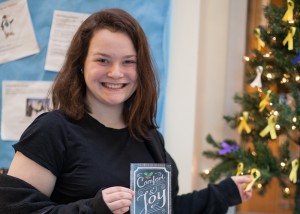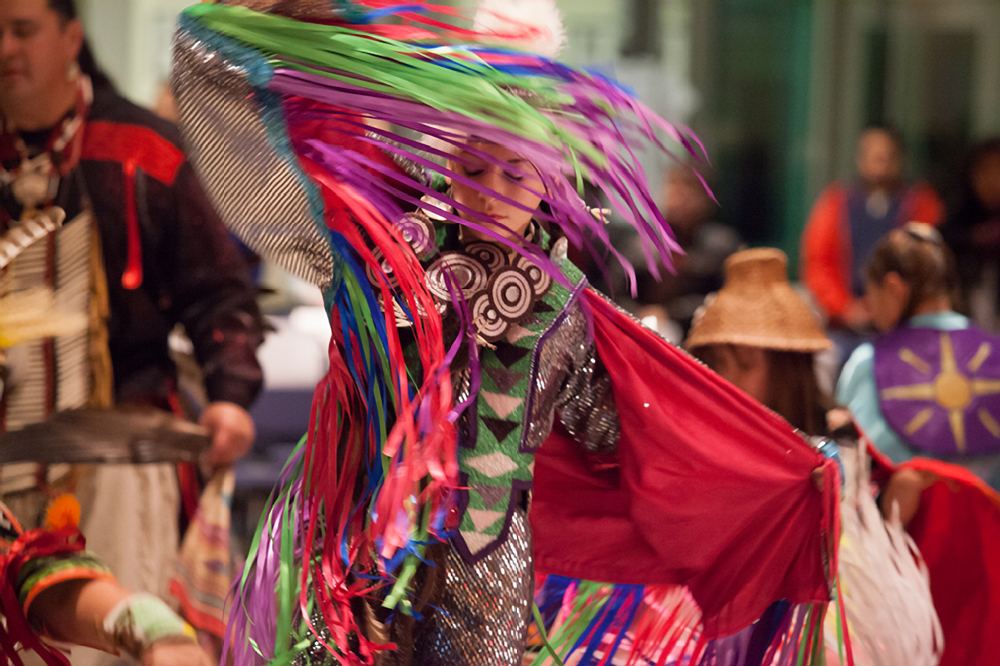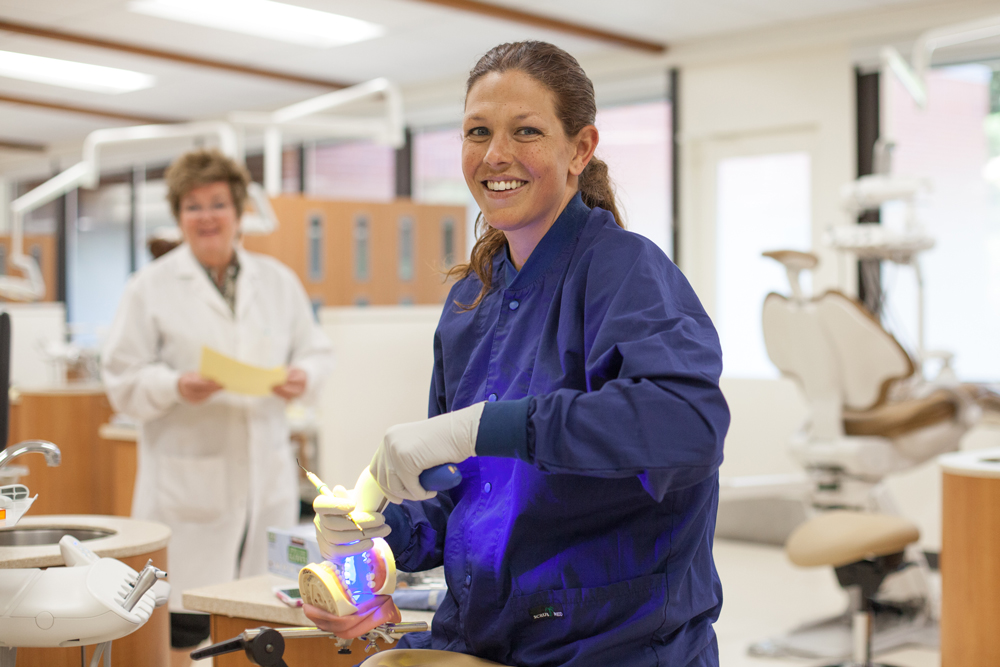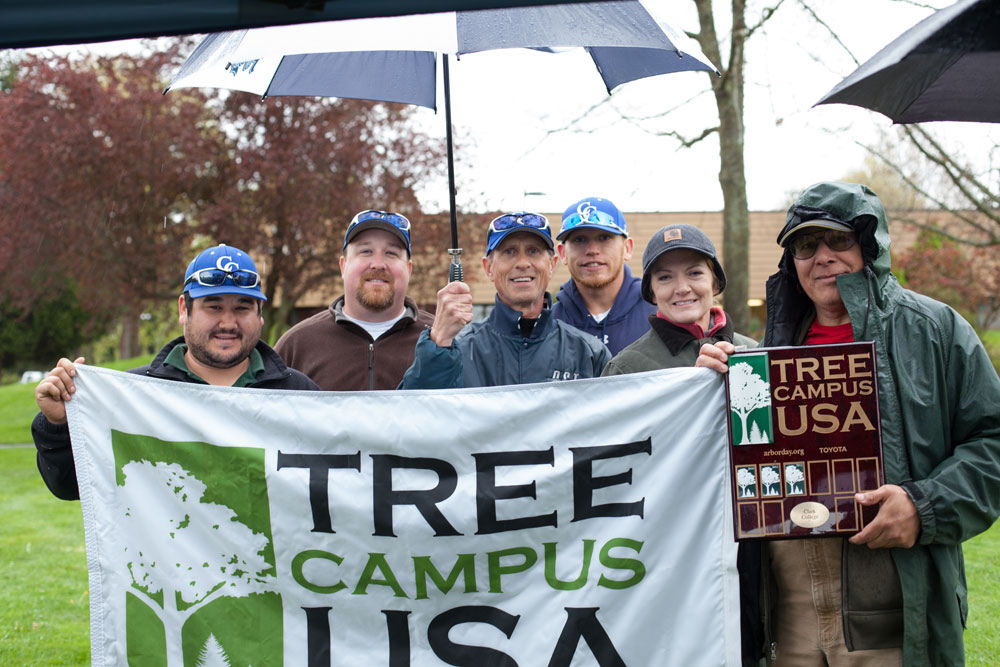Small World Could Bring Big Rewards
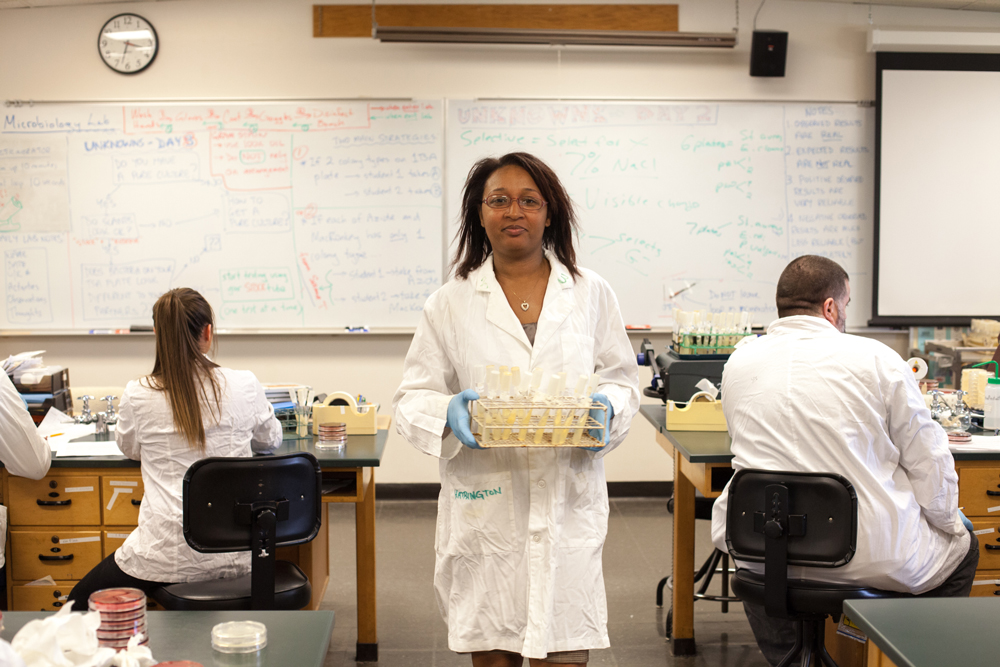
When antibiotics were first introduced in the 1930s, they seemed almost magical in their ability to save people from previously fatal infections. But recently, the medical community has warned that bacteria are evolving to resist the current drugs available, creating an urgent need for new antibiotics. Now Clark College has joined with Yale University to become part of a program searching for new antibiotics—and getting students interested in science, technology, engineering and mathematics (STEM) at the same time.
Called the Small World Initiative, the project is funded and organized by the Yale Center for Scientific Teaching. Clark is offering the Small World Antibiotics Research classes (BIO 105 & BIO 106) in the winter quarter of 2019, and another session of BIO 105 in the spring quarter.
“Clark College was one of only four community colleges in the country to be picked to start this pilot program,” says Dr. Ryan Kustusch, a Clark biology instructor who teaches the Small World class. “That makes Clark not just different from other community colleges, but different from other four-year colleges, other universities. This is a very different learning experience that a lot of students in this country just don’t get.”
In Small World, students learn microbiology by doing hands-on research—in this case, collecting soil samples to test them for potential new antibiotics. Approximately 75 percent of the antibiotics currently in use are derived from microorganisms living in the soil. After students gather their soil samples, they bring them back to the classroom, where they learn to grow the organisms living within those samples in various media in petri dishes until they have enough to test. Students then purify those organisms in order to test them against four sample bacteria that are commonly used to test antibiotic-effectiveness by pharmaceutical companies, in the hopes of finding organisms that can kill them.
“It’s really student-driven,” Kustusch explains. “I give them supplies; I tell them what may work, what might not work; and then they experiment. It really is a truly hands-on, authentic research experience.”
Any promising microorganisms are sent to Yale for DNA testing to see if they already are known to medical science; if they aren’t, these microorganisms could become the source of medicine’s next broad-spectrum antibiotic. During the class’s inaugural run at Clark during the 2014 spring quarter, two students found an organism that killed all four pathogens, and while it turned out that the microorganism had already been discovered and studied by other scientists, the possibility of discovering something that could one day save people’s lives helps keep students motivated and enthusiastic.
“I told everyone I could about that class,” says pre-nursing student Dawn Smith, who enrolled in Small World after seeing a poster advertising it near Registration. “It would be so awesome to be involved in something like finding a new antibiotic. Just the idea of that is incredible.”
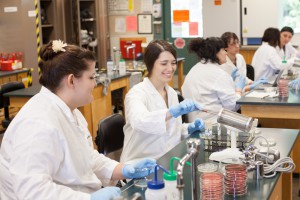 It’s also crucial, given that more and more infections have grown resistant to currently used antibiotics. According to the Centers for Disease Control, each year at least 2 million people in the U.S. become infected with antibiotic-resistant bacteria; at least 23,000 of them die due to those infections. Yet pharmaceutical companies have been reluctant to research and develop new antibiotics because the drugs are rarely profitable—patients only take them in emergencies, and only for a week or two at a time.
It’s also crucial, given that more and more infections have grown resistant to currently used antibiotics. According to the Centers for Disease Control, each year at least 2 million people in the U.S. become infected with antibiotic-resistant bacteria; at least 23,000 of them die due to those infections. Yet pharmaceutical companies have been reluctant to research and develop new antibiotics because the drugs are rarely profitable—patients only take them in emergencies, and only for a week or two at a time.
“We simply do not have enough drugs to treat our current infections,” says Kustusch. “We’re going back to the 1800s, when you treated infection by amputation—which is a terrible vision for our future. Someone has to do the initial legwork to find these drugs. We’ll never be the people doing the clinical testing and human trials and all that, but no one else is doing this basic legwork.”
“In this class, money was stripped out of the equation,” says Smith. “All we had was the big question mark hanging over our heads—our curiosity. We didn’t have to worry about profit.”
Kustusch says that combination of hands-on learning and potential real-life rewards makes Small World the perfect way to get more students interested in science. BIO 105 has no prerequisites, meaning non-science majors can take it to complete their science requirements for their degree. If a student is interested in the second Small World course, BIO 106, but has not completed the prerequisite of BIO 105, they may contact microbiology professor Dr. Roberto Anitori for a waiver (ranitori@clark.edu).
“I had a couple students who had taken a couple classes in biology, and they said this solidified that they really want to go down this path,” says Kustusch. “But the majority of the students in this class weren’t interested in science—or thought they weren’t. Now I have two students talking to me about, ‘How do I pursue a B.S. in biology?’ I think that was the goal of this class: For the people who really like science, let’s keep them interested. And for the people who never thought of this as a potential option, they’re now excited and thinking, ‘Maybe I can do something in a STEM field.’ And that’s fantastic.”
Photos: Clark College/Jenny Shadley
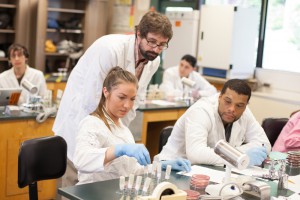
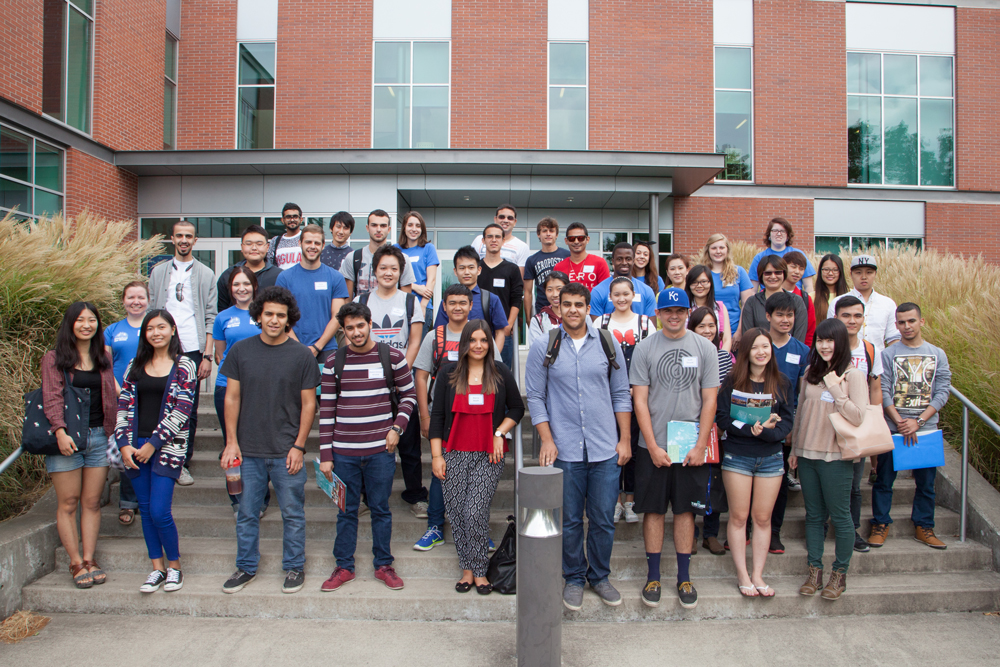
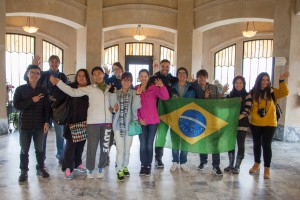
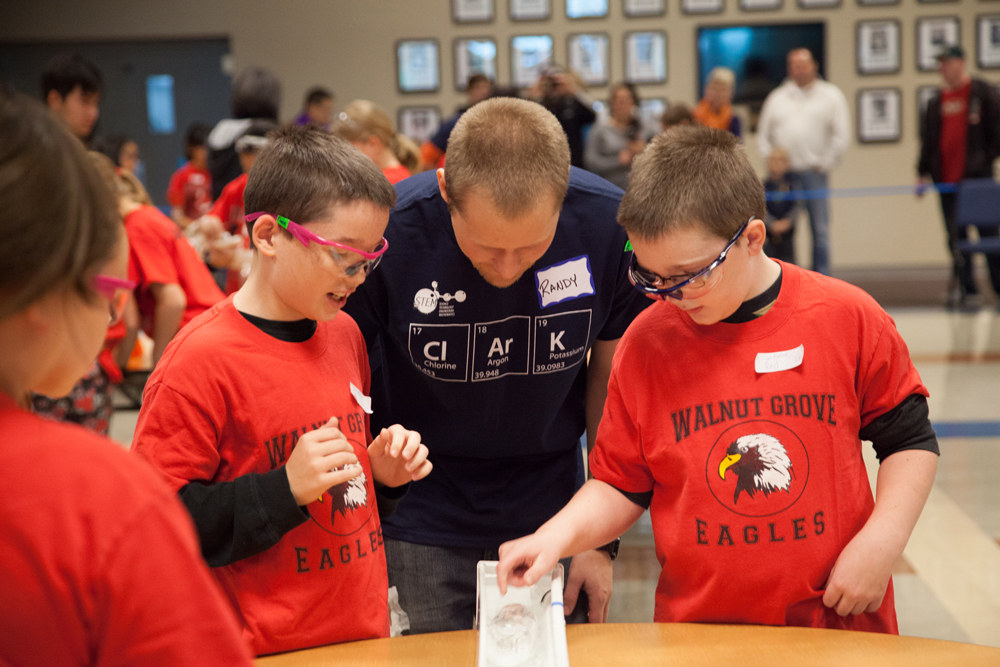
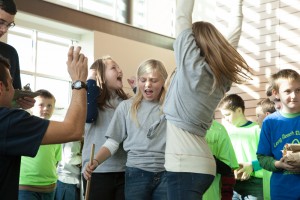
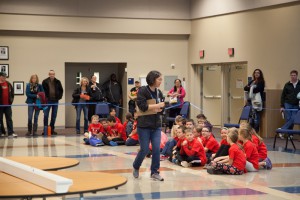
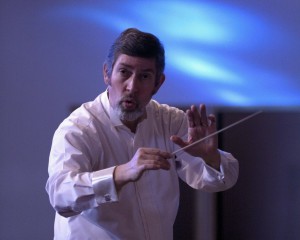
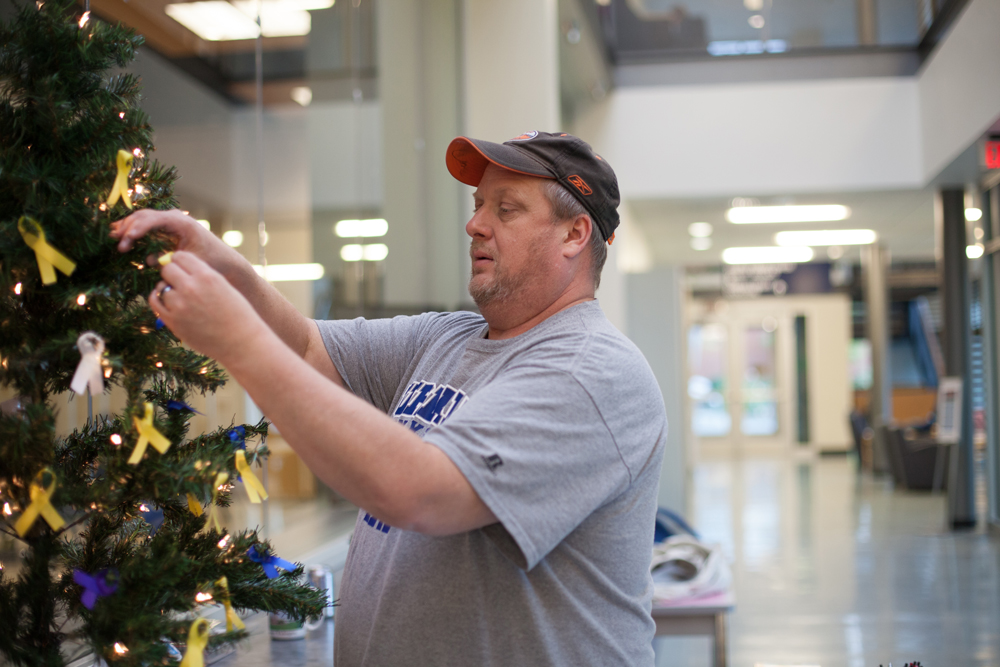
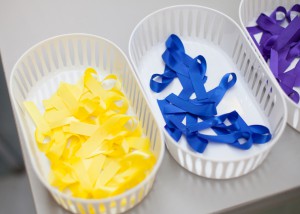 Ribbons are color-coded.
Ribbons are color-coded.